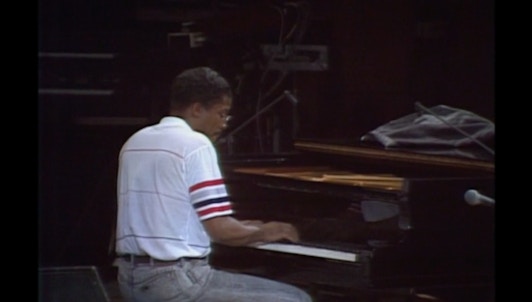The Salzburg Festival played host to three remarkable musicians on the same stage for its 1989 edition. Joe Zawinul, a true pioneer of the keyboard, who played with Miles Davis before going on to found Weather Report, a forerunner in jazz fusion; Herbie Hancock, another Miles alumnus and 14 Grammy-winning veteran who also had a big hand in the advent of fusion as well as post bop, funk and electro; and Friedrich Gulda, a giant of a jazz-classical pianist who first met Zawinul as a teenager in Austria and played clandestine jazz with him, "forbidden" music that was prohibited by the government during WW2.
In one form or another, all of these musicians had played with each other previously and their joining of forces represented a tantalising prospect for jazz fans: three iconic musicians, all of whom brought remarkable inventiveness, touch and poise. They combined over a repertoire that paid homage to Miles Davis and Mozart as well as the classic jazz piece, "Body and Soul." Zawinul is equally impressive on keyboards, piano and the breath Control Synthesizer, while Hancock and Gulda stick to their bread and butter, the grand piano. Of particular note are the final tracks, an improvised sequence, a six-handed piano rendition of Zawinul's "Night and Day" and "With Computer," a piece that combines a computer's IBM technology with the piano, which Hancock introduces by saying "you know, even Mozart wrote music for unconventional instruments."


